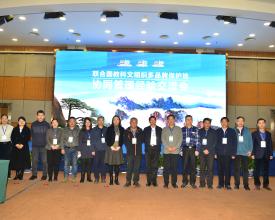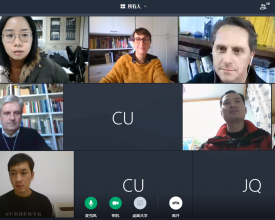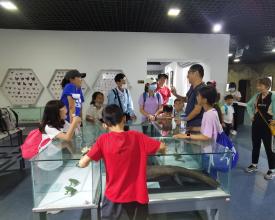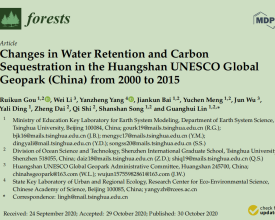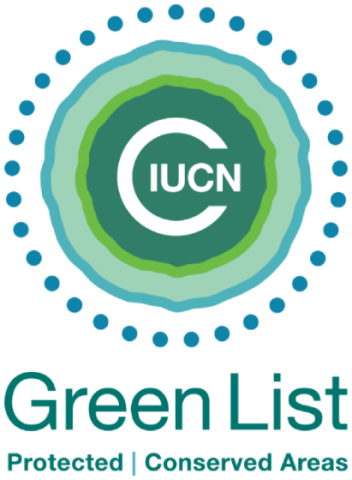
IUCN Green List Standard to promote integrated management of UNESCO multi-designations
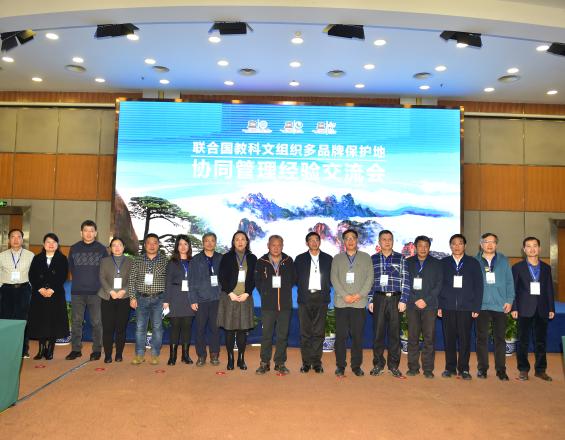
Huangshan is a World Heritage Site, a Global Geopark and a World Biosphere Reserve. To deal with the challenges in terms of management effectiveness brought by UNESCO multi-designations, Huangshan has conducted research on the integrated management of UNESCO multi-designations. IUCN Green List Standard is to achieve effective and fair management. The standard focuses on 4 aspects: good governance, reasonable design and planning, effective management, and outcomes. According to this logic, Huangshan has designed an integrated management plan for its UNESCO designations. This plan is for the coordination among the three designations and to further improve work efficiency. It has no legal effect.
Contexto
Défis à relever
Although UNESCO World Heritage, Global Geoparks and Biosphere Reserves share the ultimate goal of realizing the sustainable development of man and nature, they have different emphases on boundary scope, functional zoning, protection objectives, core values, management measures and so on, which poses challenges to the management effectiveness of Huangshan, such as repeated work, more management costs, tourists' confusion on UNESCO designations, lack of employees who know all the designations well enough to coordinate all matters related to these designations.
Ubicación
Procesar
Summary of the process
Good governance is the basis for everything. We should ensure the rationality and scientificity of personnel and organization operations. On this basis, we can make macro planning. With scientific planning, we can ensure that all the work is carried out scientifically towards the goal, so as to obtain more ideal results.
Building Blocks
Good governance
Good governance is the basis for follow-up work. In order to realize the integrated management of the three designations, we firstly need appropriate staff and working mechanism. To this end, we have formulated the Working Mechanism for Integration of the 3 UNESCO Designations of Huangshan (for trial implementation), which stipulates regular discussions among personnel responsible for each designation to seek common ground, while setting differences aside and sharing specific information relevant to each designation.
It enables us to collect all the resources of different departments and concentrate on completing common work.
Enabling factors
1. The three UNESCO designations of Huangshan are under the management of the same committee - Huangshan Scenic Area Administrative Committee.
2. The three UNESCO designations and our corresponding management departments have common goals, such as resource protection, education, developing sustainable tourism, promoting community development, etc.
Lesson learned
Appropriate organization and adequate staff is the basis of everything. It needs to be stipulated in official documents to ensure the appropriate operation.
Sound design and planning
We’ve done two things for this part. The first is to research the relevance in value and protection objectives of the 3 UNESCO designations. In order to formulate the integrated management plan, 3 interdisciplinary studies were carried out, and 2 papers with Science Citation Index and 3 reports were published. The correlation between World Heritage and Global Geoparks is studied in order to formulate integrated management strategies.
Secondly, on the basis of value identification, we made a management plan and strategy. Considering that the objectives and evaluation criteria of these three designations guide our work to a great extent, in cooperation with China University of Geosciences (Wuhan), we have studied the relationship and difference between World Heritage and Global Geopark, integrated the indicators of the three designations, and clarified their similarities and differences, so as to facilitate the division of labor and cooperation between offices. At present, two relevant reports have been issued.
Enabling factors
1. Support from Huangshan Integrated Management Expert Committee
2. Support from partner university
Lesson learned
Before making a plan, we must do investigation and research.
Firstly, in order to ensure a scientific plan, we should cooperate with professional institutions to conduct interdisciplinary research to explore the relation among geology, biology, culture, and human beings. Because, after all, our ultimate goal is to achieve sustainable development of both nature and our human beings.
Besides, to ensure the interests of stakeholders, community interviews should be conducted to listen to opinions and make use of the wisdom of local people.
And the results obtained from these researches should be presented to the public by publishing academic papers and merging the results into education materials.
Effective management
In cooperation with Tsinghua University, Huangshan has developed a monitoring system covering various evaluation indicators of the three designations, issued monitoring reports every year, analyzed the work of the whole mountain and guided the future work plan.
We have improved our display and education system to make employees, communities and school students better understand the values and connections of UNESCO designations. We have launched various forms of educational activities, used our Wechat official account, geopark museum, interpretation boards, promotional materials and website to demonstrate the different values of Huangshan. 30 sessions of Huangshan Nature Lecture were held. 20 education articles about integrated management were published on Wechat account. Our English website and 40 interpretation boards were updated to include content about integrated management.
Enabling factors
1. Support from partner university
2. Monitoring and education are the common goals of the three designations.
Lesson learned
Monitoring reports need to be distributed to every department and exchanged to better support each other.
The use of the media is needed to publicize the work and achievements. This can not only show achievements but also attract more partners, bring more cooperation opportunities and expand influence.
Successful outcomes
We hope to share our experience in integrated management with protected areas with similar situations and learn more from them. Therefore, we have jointly launched the Forum for UNESCO multi-designated sites with Shennongjia Global Geopark in China, Chilento Global Geopark in Italy and Azores Island Global Geopark in Portugal to exchange experience in integrated management.
In 2021, our research on integrated management of Huangshan got support from UNESCO seed funding. GGN newsletter and China News Agency both made special reports on the integrated management of Huangshan. We were invited to introduce the experience of integrated management at the UNESCO training course on biosphere reserves in Northeast Asia. At the 9th UNESCO International Geopark Conference, we shared Huangshan's experience in applying the Green List standard to promote integrated management.
Enabling factors
1. Our integrated management has achieved certain results
2. Cross industry communication
3.Networking of the 3 UNESCO designations
Lesson learned
Networking is mutually beneficial, and achievements can be actively exchanged and shared.
Impacts
The cooperation among departments is smoother and the work efficiency is improved.
The influence of education activities has been further improved. In 2021, the Earth Sciences and Geo-hazards Risk Reduction Section of UNESCO organized a social media campaign during the period of the 26th UN Climate Change Conference of The Parties (COP26), highlighting the good examples and practices of UNESCO Global Geoparks for climate change mitigation and adaptation. Huangshan Nature Lecture was selected as one of the 10 actions of UNESCO Global Geoparks. (see the link: https://en.unesco.org/news/unesco-global-geoparks-forefront-climate-change-action-0). Over 3000 families through the lecture, 30'000 people through official Wechat account, 200'000 tourists through boards have learned the value of Huangshan's multi-designations.
Through exchanges with other UNESCO sites and participation in international exchange activities, Huangshan’s practice on integrated management is shared. At the same time, it also makes more managers of protected areas pay more attention to this issue, the integrated management of UNESCO multi-designated sites. In addition, these exchanges have deepened our own understanding of integrated management and helped us to further improve our work in this regard.
Beneficiaries
1. UNESCO multi-designated sites
2. Tourists
3. Communities.
